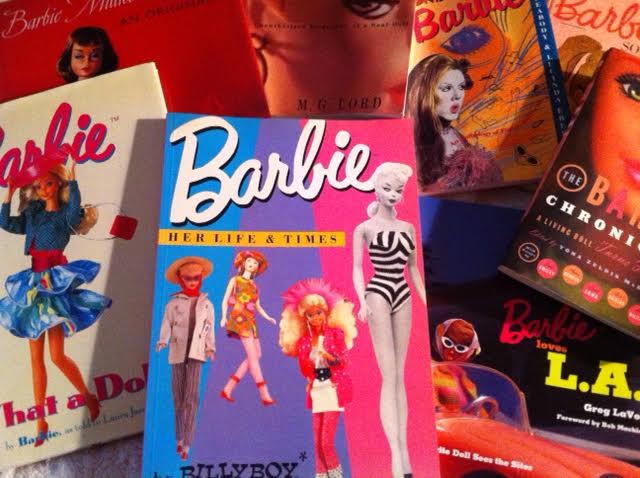What are you doing in your own life to deal with racism in the United States?
This is a question I grapple with a lot since George Floyd was killed in June 2020.
Last night while watching the CBS Oprah Winfrey interview of Meghan Markle and Prince Harry, I saw how my lens on race has shifted. Finally, a sign of progress when most times I feel like I’m moving at a glacial pace.
There are two main things I’ve done since Floyd’s death to help me understand systemic racism better. One was to start following a lot more social media accounts by women of color. The idea here was to expose myself to more viewpoints and listen. And listen some more.
I find, not surprisingly, when you read dialogue between and among women of color, you get an entirely different take on situations unfolding in current events and in cultural contexts. The idea here was not to partake in the dialogue, but to witness it. I have a lot of work to do.
The second thing I did, which I’ve written about before, was to start a book club where we read authors of color. The goal of this was to learn. And learn some more. The story of slavery in our country has been glossed over in the bulk of our history classes, a fact I’m embarrassed to say I didn’t fully comprehend until my current age of 59.
Raise your hand if you learned in high school or college that the Nazis in Germany used the American model of whites enslaving blacks to forge their path forward in demonizing and killing Jews. Thank you, Isabel Wilkerson, for writing Caste: The Origins of Our Discontent and educating a lot of readers about our own country. We may have been liberators in World War II, but we also inspired the Third Reich. From Wilkerson’s book:
While the Nazis praised “the American commitment to legislating racial purity,” they could not abide “the unforgiving hardness” under which “‘an American man or woman who has even a drop of Negro blood in their veins’ counted as blacks,” Whitman wrote. “The one-drop rule was too harsh for the Nazis.”
Got that? The treatment of blacks in the United States went a step too far for Hitler.
Which brings me back to Meghan and Harry.
During the commercials of the two-hour special, I scrolled through social media, mostly Twitter, to get a read on things. That’s when I saw the difference in the Tweets between black women and a lot of white women (and men).
Women of color were strident in their praise of Winfrey’s interviewing and Meghan’s truth telling, and one after another told of how they could relate to some of the treatment Meghan described. They were pumped and got more amped as the interview continued. They were aghast at the positive coverage of Kate Middleton compared to Markle’s negative press in the British tabloids, but those slanted headlines were quickly overshadowed when the story relating to baby Archie came out.
Meghan told Winfrey that there were concerns among the royals about “how dark” their baby’s skin tone might be. When Harry came out later to join them, he confirmed this while protecting the source of the racist statement.
My reaction, much like Winfrey’s, was one of shock. Black women were exclaiming their surprise on Twitter almost in stereo.
To be clear, this wasn’t surprise that there could be racism among the royals, as so many white observers obsessed about. (God, I am so tired of that question – why are you surprised? – when someone does something horrible). No, what was happening was that black women recognized how new it was to hear this said out loud. They’ve become accustomed to whitey sweeping all this ugliness under a rug and telling them they’re crazy to think anyone discriminates against them because of their race.
This was proof, aired out in the open on an international scale. The most elite of white institutions – and in some quarters most beloved – which at one time seemed to embrace Harry’s mixed-race wife was now showing its true colors. No child who could potentially be born “dark” would be getting a royal title or royal protection.
I felt like I needed a shower listening to this. How cruel and bigoted. Imagine how this lands on a mother or father.
But lots of white America wanted these two young people to just stop whining. Hey, what do rich people have to complain about? Why are they airing dirty laundry? She snagged a prince, what more does she want? He is a prince, why should I feel sorry for him? Suicidal thoughts – oh, please.
Seriously? What a gross, maddening display.
I’m not exactly a follower of the royals, but I do know the bare bones of their story. I get that they’re self-contained, an engine driven by mythology and wealth. A lot of people were heartened by that beautiful wedding where an outsider seemed to penetrate that lily white bubble. If we thought they were going to come along on the “we’ve made progress” ride we were sadly mistaken.
What I see in this is that many white people are still far too blasé about racism. We need more of what renowned author Ibram X. Kendi calls anti-racist behavior. Active not passive. This comment about a baby wasn’t some casual misstep or insensitivity shown by a member of the royal family. This was citing the one-drop rule that even the Third Reich couldn’t abide.
We saw Winfrey, wide-eyed. I read comments by women of color in real time, emotional and angry, as was warranted. But us, we’re not outraged by stuff like this. Instead, we get – are you really surprised?
No, I’m not fucking surprised that the British monarchy has racism in its ranks. But we just heard a piercing comment about a BABY. Why isn’t that making your head explode for its sheer audacity? What kind of darkness must you have in your soul to be unaffected by that kind of thinking? Empathy, anyone?
I will keep listening and reading and learning. Like I said, I still have plenty of work to do. But I’m grateful for a glimmer of understanding that I know I didn’t have a year ago.






